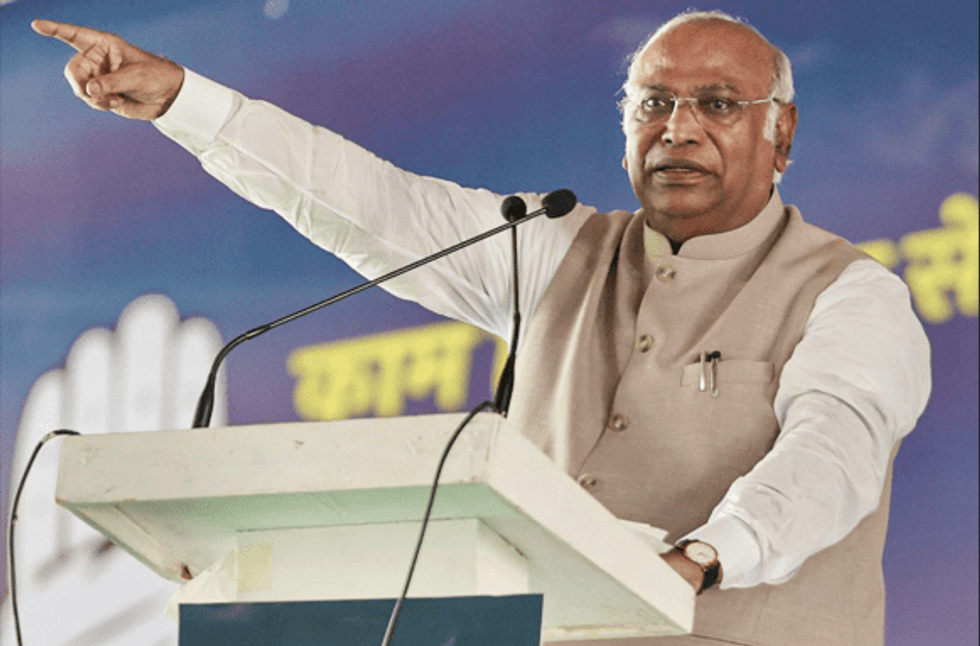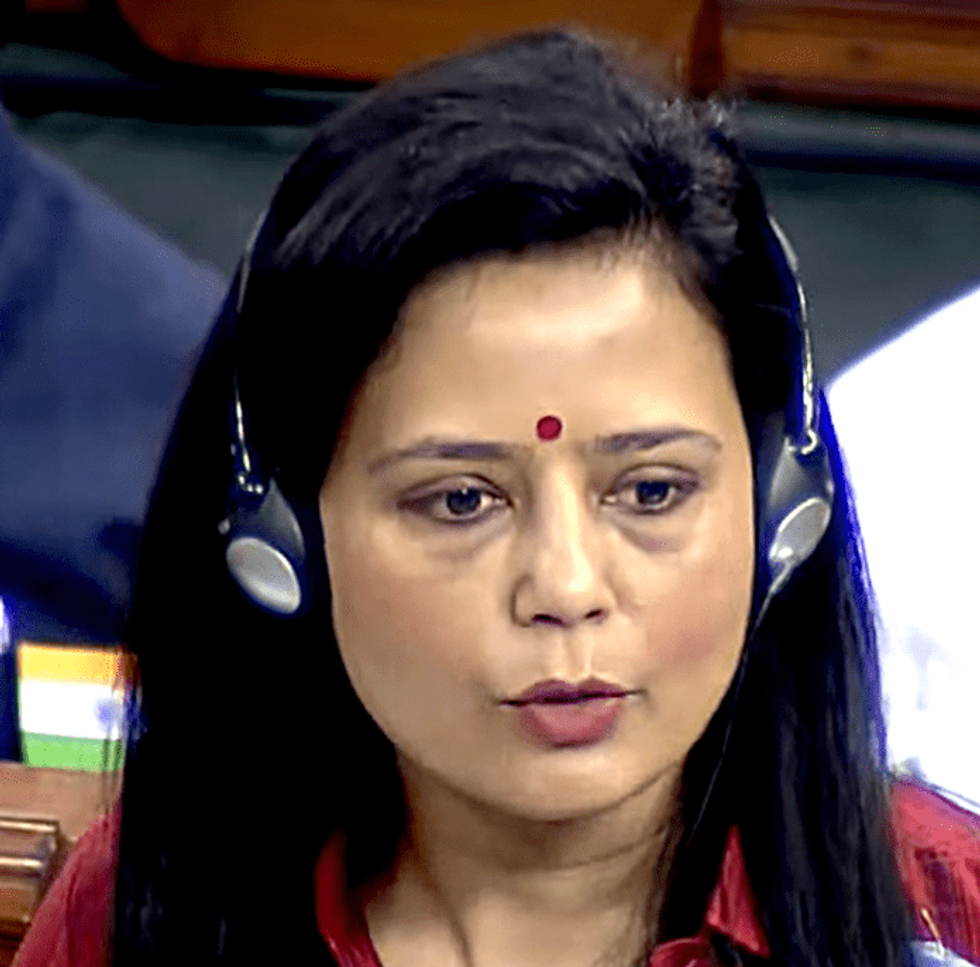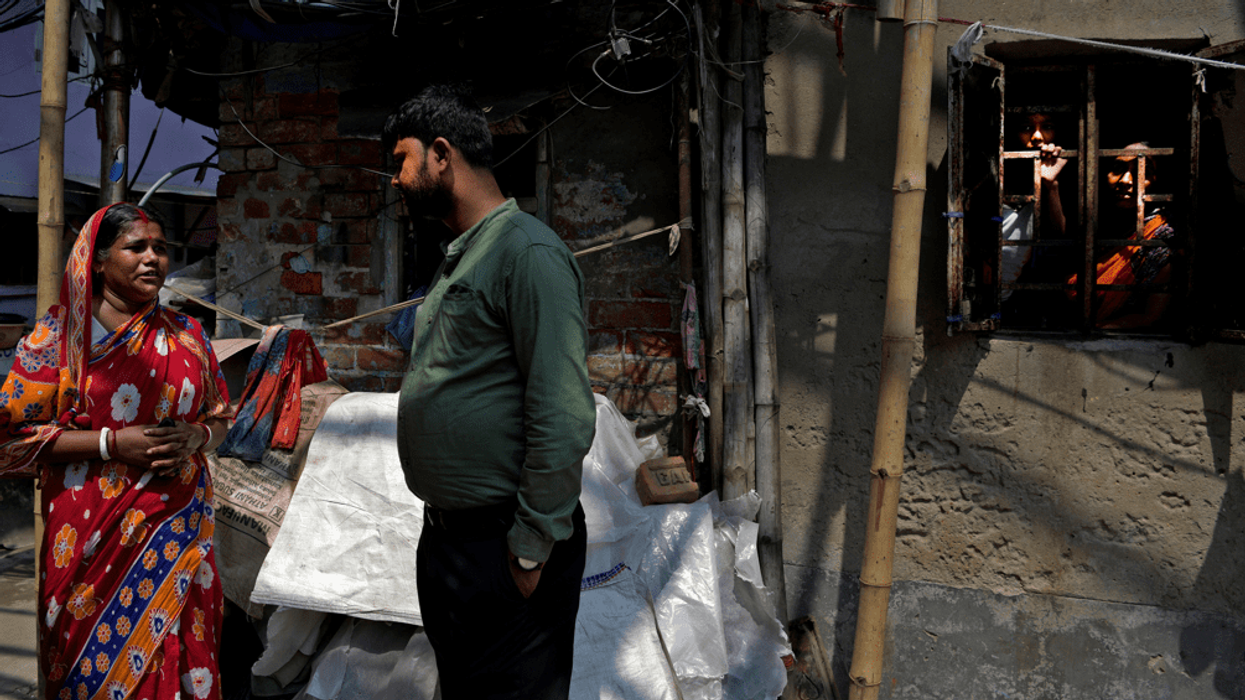INDIAN activist Partha Chaudhury is on a war footing as he strides out of the ruling BJP’s regional headquarters in Kolkata armed with passion and pages of voter lists.
“We need to meet each and every BJP supporter, and all of this has to be done in less than 300 days,” the 39-year-old tells a group of fellow activists advancing into the north of Kolkata, the teeming riverfront capital of West Bengal that’s home to about 15 million people. “We want people to remember that the BJP knocked on their doors much before any opposition party worker did.”
Chaudhury and his team are among an army of 18,000 volunteer activists fanning out across India ahead of next year’s national election. Their mission is to meet – face-to-face – with about 35 million BJP supporters by January, or roughly 2,000 each.
The Bharatiya Janata Party, the world’s largest political outfit with 180 million members, is betting on what it says is the biggest voter outreach campaign in history, to secure a third term in power in the world’s most populous country.
Its leader, prime minister Narendra Modi, remains enduringly popular among Indians after almost a decade having brought political stability, invested in infrastructure, and championed welfare reforms and national security.
Despite voter concerns about inflation, unemployment and uneven growth, opinion polls suggest the BJP will comfortably win a third term in the national elections, expected to be held in April and May.
It’s no sure thing, though: growing anti-incumbency sentiment is conspiring with a newly formed national alliance of 26 opposition parties, including Congress, to pose what BJP officials say will be Modi’s toughest test by far.
“For once we are now seeing a united opposition,” said Tamoghna Ghosh, a senior BJP official campaigning in Kolkata. “They may be devoid of a shared political ideology or vision, but their determination to defeat Modi can’t be overlooked.”
While Modi and the BJP stress they govern for all Indians, their emphasis of their Hindu faith and culture has worried some members of minority groups who feel politically excluded, especially Muslims who make up about 14 per cent of the 1.4 billion population.
BJP leaders in New Delhi have been spurred to action by an internal report presented to them by researchers in February, which concluded that an anti-incumbency vote could see the party lose about 34 of their 303 lawmakers in the lower house of parliament, robbing it of the majority that gives it a freer hand to pass laws, three senior party officials told Reuters.
This time we will have to win in uncharted territories as retaining all the existing seats for the third time in a row is going to be a challenge,” said BJP national president JP Nadda, who is leading the grassroots mobilisation drive.
In conversations with Reuters, Nadda and six other senior BJP figures outlined previously unreported details of the project – dubbed the “Big Outreach” internally – which they said marked a shift from its 2014 and 2019 election strategies focused more on large campaign rallies across the country.
It won’t be an easy task, or free of risk, according to Nalin Mehta, dean at the UPES School of Modern Media in Uttarakhand and author of the book The New BJP. He said the ground mobilisation, accompanied by an online campaign blitz, could fuel anti-incumbency sentiment in some quarters.
“The BJP’s challenge as the dominant national party is to manage voter fatigue and to sustain the enthusiasm among its cadres after two terms in power,” Mehta added.
“The party’s ground-level cadre-building goes hand in hand with the creation of a massive digital footprint... as well as an industrial scale use of social media.”
The BJP’s outreach began over the summer, much earlier than in its previous campaigns when mobilisation started about four months before national elections.
The campaign isn’t focusing on wooing voters from rival parties, according to the party officials, but will instead make direct contact with people who voted BJP in 2019 to lock down their support, enlist their campaigning assistance and provide intelligence on local issues.

The first phase, slated to end in early October, targets 134 priority constituencies with Hindu-majority populations where they lost by narrow margins in 2014 and 2019.
“These seats require energetic intervention and insulation of existing vote share,” said Nadda, adding that the second phase ending in January would see activists visit all of the 303 seats that the party won four years ago.
“This time, the world’s biggest party has launched the biggest-ever outreach to win the world’s biggest elections.”
Mahua Moitra, a national MP from the regional opposition All India Trinamool Congress, isn’t impressed. She said the bolstered outreach efforts reflected the threats posed to the BJP by the “INDIA” alliance of 26 rivals formed in July to challenge the ruling party’s nationalist platform and oust Modi.
“The BJP is in panic mode and it’s forcing them to set up a task-force to meet voters a year before elections,” she added. “They won’t be third-time lucky.”
Moitra, who represents Krishnanagar in West Bengal, a state in India’s far east where Muslims make up about a quarter of the population. The BJP is resented by many voters there who fear its approach has marginalised minorities and hindered their economic progress.
Mallikarjun Kharge, president of the main opposition Congress party, said the coalition of 26 regional parties might not have the financial clout enjoyed by the ruling party to launch a similar grassroots campaign, but the alliance had mustered a broad enough opposition base to oust Modi.
“The BJP’s grassroot workers can gather intelligence or coax voters, but they will not win the 2024 election,” he said, adding that too much “in-your-face” campaigning could turn off voters. Not so, says BJP leader Nadda who says politicians must keep their ear to the ground.
Kolkata is a city with deep historical, strategic and political significance. Long a trading hub for commodities like jute and tea, it was once the seat of British power in India as well as the cradle of an intellectual and artistic renaissance born in the 18th century.
Kolkata North, where the ruling party is campaigning, is a prime example of an early priority seat being targeted, as well as the problems the BJP faces nationally.
The BJP was beaten by a regional opposition party four years ago, even though it had strong support there, winning roughly 600,000 of the total 1.5 million votes cast.

Nonetheless, Chaudhury, an ophthalmologist by profession, has a clear vision as he traverses streets dotted with the 300-year old crumbling architectural legacy of a bygone colonial era. His first stop is a tin-shed shop in a slum district skirted by Victorianera houses that have seen better days, where he introduces himself to a bare-chested shopkeeper tending a cauldron of oil and kneading dough to fry samosas.
“Please tell us, elder brother, what can we do to make your life better?” Chaudhury asked the shopkeeper and ticks off the man’s name in his voter list.
Chaudhury intones a mantra he’ll repeat to more than 20 voters in the next three hours: “We know you vote for the BJP and we are here to understand what we should be doing to win this seat in 2024.” (Reuters)












